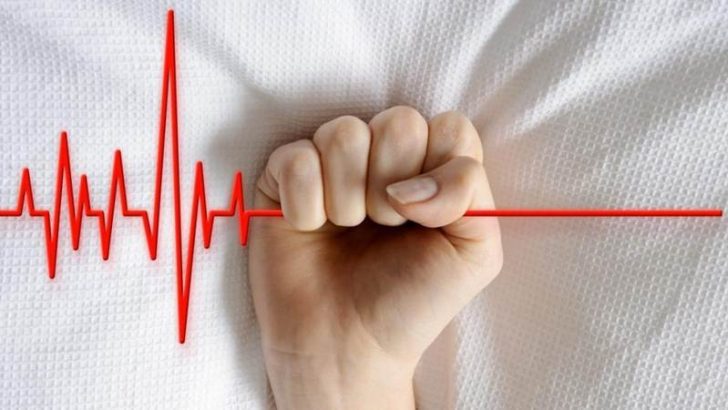There is a growing risk that the health service may begin to consider cost-saving measures that free up urgently needed beds, writes Dr Norella Broderick
Support for euthanasia in Western Europe is growing. The UK-based Guardian reported last month that 93% of the British public now support physician-assisted suicide in the case of terminal illness.
The Royal College of Physicians changed its official stance to ‘neutral’ on the issue this year after a poll of its members showed that 31.6% of physicians supported assisted dying. The State of Victoria in Australia has recently issued its first assisted suicide permit and the Prime Minister of New Zealand is supporting a bill to introduce voluntary euthanasia there.
However, support in the US has plateaued in recent years. The American Medical Association this summer vetoed a proposal to become neutral on assisted suicide, continuing to oppose the practice. Despite a bid by Canada and the Netherlands to garner the support of the World Medical Association last year, it too continues to oppose euthanasia.
Activity
Further, the European data is clear: support for euthanasia is declining in Eastern Europe. Perhaps history has taught the countries of Eastern Europe that the idea of ‘lives unworthy of living’ is an unsound basis on to justify ‘mercy killing’.
The word ‘euthanasia’ roughly means ‘a good death’. Proponents often argue that voluntary euthanasia is needed to prevent unbearable pain in terminal patients. However, research has shown that though the majority of cases of euthanasia around the world are carried out on cancer patients, inadequate pain control is listed as a problem in a minority of cases.
In 2018 in Oregon in the US, the top three reasons for choosing euthanasia were reported as: loss of autonomy, decreasing ability to participate in activities that made life enjoyable, and loss of dignity.
The ethical principle of autonomy is valued most highly by those advocating for euthanasia. Freedom is one of the highest values in our legal system and society.
Our system of human rights laws is largely concerned with protecting autonomy – against the power of the State; against undue influence from others. I should be free to choose – including my own death. Rational suicide is the ultimate freedom.
The ethical principles of beneficence and of non-maleficence are the principal guides in medicine – to act to do good, and to do no harm. This is usually expressed as ‘acting in the patient’s best interest’. We do this all the time when we weigh up the benefits and burdens of treatment and make our recommendations to patients.
The ultimate benefit is a long and healthy life and the ultimate burden is untimely death. Arguably medical ethics, possibly in contrast to the legal system, value life most centrally.
{{If I concede that you are not worth fighting for, then neither am I; neither is the vulnerable disabled patient”
This generally has led to a mind-set in healthcare that encourages responsible stewardship of our lives and health: eat healthily; quit smoking; exercise more. Ireland has an excellent reputation for care in our hospitals, responsibly stewarding patients back to health.
However, this is coming under pressure. There is a growing risk that the health service, in these straitened times in which it finds itself, may begin to consider cost-saving measures that free up urgently needed beds.
We are short of healthcare staff; we are short of hospital beds; we don’t have nursing homes to discharge patients to; home help is under threat; and by decree of the HSE, hospitals now need to balance their budgets, or else! What would be the harm in considering allowing euthanasia, if that’s what patients want? And it alleviates unbearable suffering.
But what is ‘unbearable suffering’? It is suffering I can see no reason to bear. What could be worth this suffering? I have lost enjoyment; I have ‘lost’ my dignity; I can’t look after myself. Why would I continue to live? Am I not a burden anyway? And yet:
“every man is…a part of the main; …every man’s death diminishes me because I am involved in mankind” (‘No Man is an Island’ – John Donne)
The integrity of the human community is at stake in this debate. If I concede that you are not worth fighting for, then neither am I; neither is the vulnerable disabled patient; neither is the difficult-to-calm psychotic patient; neither is the needy crying infant.
A culture of life means affirming the dignity of everyone, regardless of whether they feel dignified or not.
It means supporting people who are suffering. If they don’t have blind faith to hold on to, they may need a human touch, someone to hold their hand.
Life is moment-to-moment. Enjoy this moment. I will be with you. You are not alone. And then a youthful sparkle in an aging eye stirs a remnant of hope as ‘dignity’ awakens within and reveals the person to the world.
We have traditionally cared well for the sick and comforted the dying in this country, promoting their dignity.
Let us continue to advocate for the on-going protection of patient dignity.
Dr Norella Broderick is a senior trainee in psychiatry and a member of the committee of the ICDLN. Assisted dying and euthanasia will be amongst the topics discussed at the ICDLN in Dublin on October 5. www.icdln.ie



